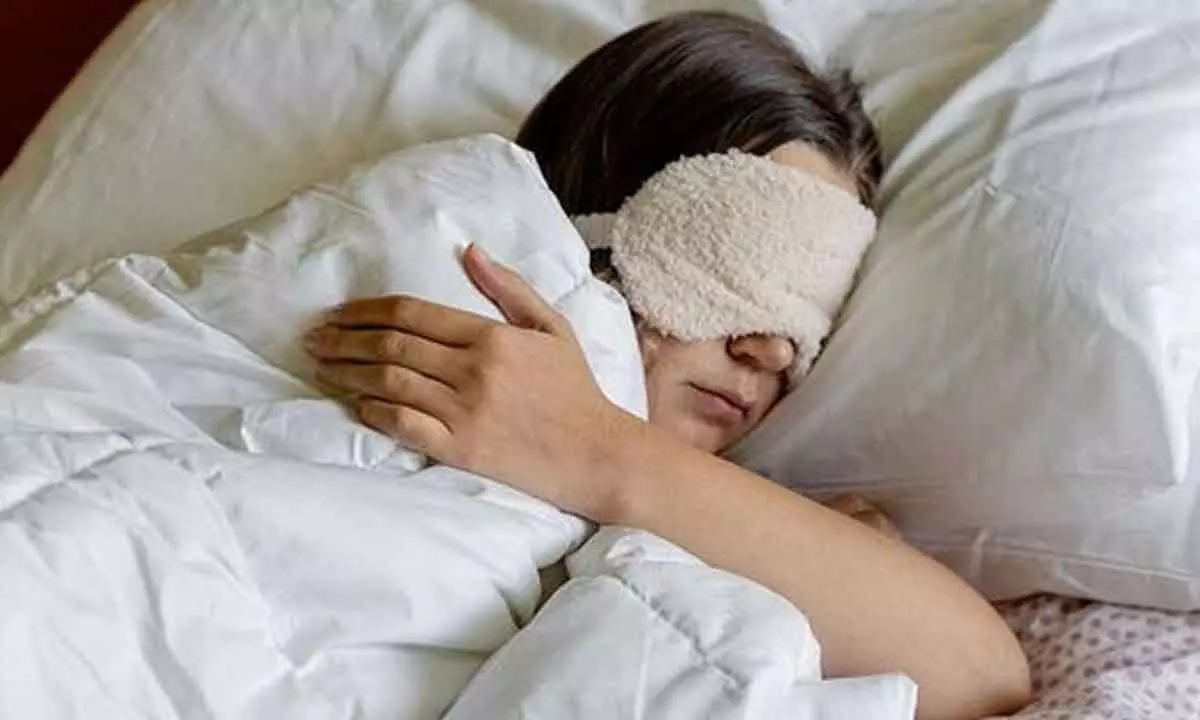Live
- Globus Spirits Limited introduces India Single Malt under the brand DŌAAB India Craft Whisky
- BGT 2024-25: No greater honour to lead India in Test cricket, says Bumrah ahead of series opener
- NMO Bharat calls for apology from Rahul Gandhi over ageist remarks about Joe Biden
- Centre blocks 17,000 WhatsApp accounts of hackers from South-East Asia
- Learn from Mumbai hoarding collapse, Calcutta HC tells Bengal municipal corporation
- Russian Spokesperson Instructed to Stay Silent on ICBM Strike During Press Conference: Viral Video
- Intellipaat Sets New Benchmark with First-of-its-kind Physical Labs for Electric Vehicle Training in Chennai and Pune
- Google Gemini AI Introduces Memory Feature Like ChatGPT: How It Enhances Personalized Interactions
- Latur beneficiaries get affordable houses under PMAY, thanks Modi govt
- Rajasthan HC quashes FIR against Shilpa Shetty under SC/ST Act
Just In
Prioritise sleep; do not compromise it


In today’s fast-paced world, the pursuit of success often leads people to prioritise work and deadlines over rest and sleep
In today’s fast-paced world, the pursuit of success often leads people to prioritise work and deadlines over rest and sleep. While this might seem like a way to increase productivity, it can actually have the opposite effect. Sleep is not a luxury but a necessity for peak performance. Just as an aircraft requires maintenance between flights, our bodies need proper rest to function effectively. Skipping sleep is akin to flying on an unfuelled aircraft—unsustainable and risky.
Many believe that trading a few hours of sleep for more work will yield better results, but research proves otherwise. Sleep deprivation drains energy, stifles creativity, and reduces focus. Over time, chronic lack of sleep can lead to impaired decision-making, diminished problem-solving skills, and a significant drop in productivity. Moreover, the negative impact on mental well-being is undeniable, as sleep and mental health are deeply connected.
The Science of Sleep
Sleep is a vital physiological process during which the body and brain undergo significant restoration. As soon as we fall asleep, our body temperature drops, breathing and heart rate slow, and the brain begins to recharge. This is not just downtime for the body but an active period of regeneration. The quality of sleep is determined by multiple cycles that occur throughout the night, and these cycles are essential for physical and mental recovery.
During sleep, the brain processes information, repairs cells, and recharges for the next day. Without adequate rest, we lose the ability to focus and think clearly. Poor sleep affects the prefrontal cortex, which is responsible for decision-making and emotional regulation. When deprived of sleep, individuals are more prone to emotional reactivity, stress, and irritability, which in turn harms their ability to function in teams and maintain relationships.
The Effects of Sleep Deprivation on Performance
The belief that productivity improves with less sleep is a widespread misconception. In fact, the opposite is true. Sleep deprivation leads to decreased productivity, focus, and creativity. A well-known example is the Chernobyl nuclear disaster, where sleep-deprived workers made critical errors due to exhaustion and poor judgment. While this may be an extreme case, it illustrates the dangers of operating without enough sleep.
Insufficient sleep also has long-term consequences, including headaches, cardiovascular diseases, diabetes, and weakened immunity. This increases the risk of accidents and errors in everyday life and at work. Sacrificing sleep for work may seem beneficial in the short term, but it ultimately leads to diminishing returns.
Debunking Common Myths About Sleep
In today’s society, sleep is often misunderstood. Some people believe that highly successful individuals can get by with little sleep. However, studies show that most achievers prioritise rest as a key element of their routine. Sleep is not a sign of laziness, but an essential part of overall well-being.
The constant presence of technology also interferes with sleep quality. The blue light from screens hinders the production of melatonin, the hormone responsible for sleep. Creating boundaries between work and rest, such as limiting screen time before bed, is crucial for improving sleep hygiene.
Cultivating Healthy Sleep Habits
Improving sleep quality requires mindful practices. Establishing a regular sleep schedule, creating a calming bedtime routine, and reducing distractions in the bedroom can significantly enhance sleep. Activities like reading, meditation, or a warm bath before bed can promote relaxation and help prepare the mind and body for rest.
Achieving optimal sleep is not just beneficial but necessary.
It forms the foundation for sustained success, sharper focus, and enhanced creativity. Remember, a well-rested mind is more powerful, and prioritising sleep will lead to better productivity and well-being in the long run.
(The writer is Chief Psychologist and Senior Director – Clinical Excellence, Manah Wellness)

© 2024 Hyderabad Media House Limited/The Hans India. All rights reserved. Powered by hocalwire.com






